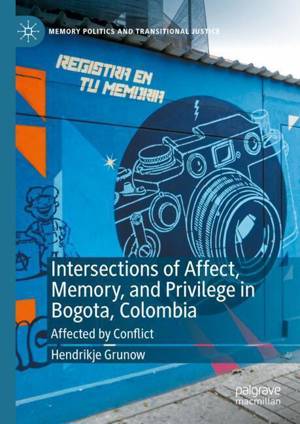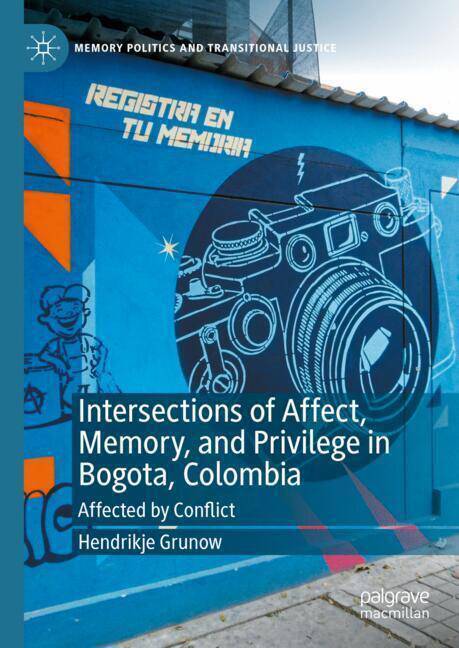
- Afhalen na 1 uur in een winkel met voorraad
- Gratis thuislevering in België vanaf € 30
- Ruim aanbod met 7 miljoen producten
- Afhalen na 1 uur in een winkel met voorraad
- Gratis thuislevering in België vanaf € 30
- Ruim aanbod met 7 miljoen producten
Intersections of Affect, Memory, and Privilege in Bogota, Colombia
Affected by Conflict
Hendrikje GrunowOmschrijving
This book explores the intersections of affect, memory and privilege among Bogota's upper middle class. Combining approaches from memory studies, anthropology, feminist and affect theory, this work is concerned with the implications for the present and potential futures contained in affective encounters. It is structured along four affects describing the social, spatial, historical and political aspects of 'being affected' by the Colombian conflict. After showing how the Colombian conflict is rooted in specific affective relationships to land, disappointment and crushed hopes in the context of various peace negotiations are portrayed as the central experiences nurturing a sense of a doubling or re-experiencing of past emotions. Then, a specifically upper-middle class emotional habitus and its implication for the social connections to people more directly affected by the conflict are outlined, and peace as an upper middle-class affect is revealed as a privilege not everyone deserves.
Specificaties
Betrokkenen
- Auteur(s):
- Uitgeverij:
Inhoud
- Aantal bladzijden:
- 211
- Taal:
- Engels
- Reeks:
Eigenschappen
- Productcode (EAN):
- 9783031509346
- Verschijningsdatum:
- 27/05/2024
- Uitvoering:
- Hardcover
- Formaat:
- Genaaid
- Afmetingen:
- 156 mm x 213 mm
- Gewicht:
- 426 g

Alleen bij Standaard Boekhandel
Beoordelingen
We publiceren alleen reviews die voldoen aan de voorwaarden voor reviews. Bekijk onze voorwaarden voor reviews.











